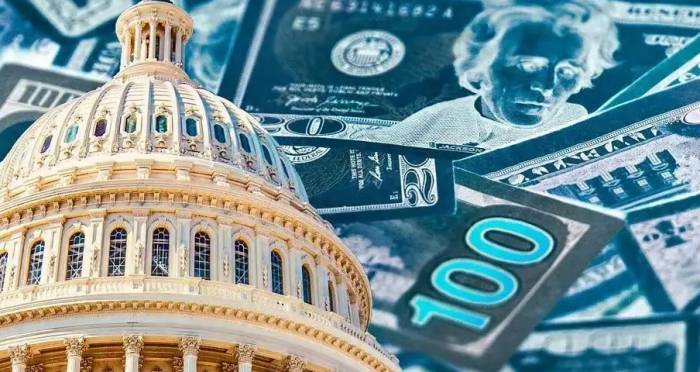US Short Squeeze Ends? Pre-Bond Crash Settlement Begins?
As the U.S. economy faces pressure and the U.S. debt crisis accelerates, the situation for short-sellers is quietly changing. The development of this Sino-American financial war will determine the future landscape; who will ultimately be the winner?
In this volatile global economic environment, some striking changes have recently emerged. The U.S. short-selling wave seems to be coming to an end, and the collapse crisis of U.S. debt is gradually revealing itself. What stories lie behind this? More importantly, in this Sino-American financial war, who is the real winner?
First, let's review the current state of the U.S. debt market. U.S. Treasury bonds have long been considered a safe asset, but this situation could change at any time when investors start to feel the pressure of economic slowdown. As interest rates continue to rise, the appeal of U.S. debt decreases, and many bond investors begin to re-evaluate their holdings.
Recent data show that U.S. debt has reached a dangerous level, and there are signs that market confidence is gradually being lost. Historically, we have witnessed the financial turmoil triggered by the collapse of U.S. debt, a situation we absolutely do not want to see. However, now this risk has become within reach.
Advertisement
At this critical moment, we must talk about the group of U.S. short-sellers. Over the past few years, many investors have chosen to short U.S. debt, betting on its decline. However, these short-sellers are now facing a difficult choice: to continue to insist on their views or to exit in time before the collapse? This uncertainty puts them under great pressure.
At the same time, the financial war between China and the U.S. is also escalating. Since the start of the trade war, the two countries have been engaged in a war without smoke, with various economic sanctions, tariffs, and monetary policy games emerging endlessly. Now, with the intensification of the U.S. debt crisis, the struggle in the Sino-American financial war has become more apparent.
As the largest creditor of the U.S., China naturally cannot take this lying down. In recent years, China has been continuously reducing its holdings of U.S. debt through various means and promoting the internationalization of the renminbi, hoping to reduce its dependence on the U.S. dollar.
This series of actions indicates that China's strategic adjustments in the financial war have begun to take effect, making the U.S. feel a hint of threat.
So, who won in this financial war? If we look at it in the short term, the U.S. may still have the upper hand, after all, the U.S. dollar is still the world's main reserve currency, and its position in international trade is hard to shake.
However, in the long term, China's goals are clearer. Through structural reforms and international expansion, it is seeking to challenge the hegemonic status of the U.S. dollar.Relatively speaking, the United States' response measures appear somewhat passive. Facing the rising debt levels and slowing economic growth, whether the U.S. can adopt effective policies to fend off crises will directly affect its victory or defeat in this financial battle.
At present, the Federal Reserve's interest rate policy has become the focus of market attention, with investors closely monitoring its movements.
Beyond the policy level, the global economic recovery after the pandemic has also greatly impacted the financial markets. Many countries are attempting to stimulate economic growth through various means; however, the return of inflation complicates the situation.
The economic challenges faced by the U.S. stem not only from domestic issues but also from international market competition and pressure.
It can be said that there is no absolute answer to the success or failure of the Sino-American financial war; any strategic misstep by either side could lead to unforeseen consequences. We often see that market trends are fickle, and a small event can trigger a chain reaction.

In summary, it seems that the reckoning of the U.S. debt crisis has quietly begun, and the days of U.S. short-sellers are filled with uncertainty. In this Sino-American financial war, both established powers and emerging forces are constantly seeking their own breakthroughs.
Who will ultimately have the last laugh may require our patient observation.
In this rapidly changing era, mastering market dynamics and policy trends is a challenge that every investor must face.
Whether you advocate for the traditional financial system or are optimistic about the development of emerging markets, staying alert and being flexible are the keys to finding opportunities in this fierce financial war.
Leave a comment